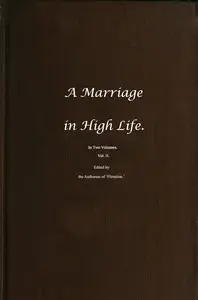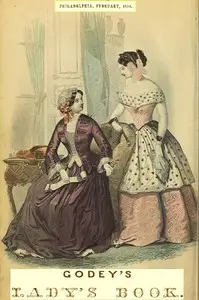"Cecilia; Or, Memoirs of an Heiress — Volume 3" by Fanny Burney continues the story of Cecilia Beverley, a young woman navigating the treacherous waters of love and societal pressure in the late 1700s. This installment intensifies the drama surrounding Cecilia's relationship with Mortimer Delvile, a man torn between his love for her and the unyielding expectations of his aristocratic family. As Cecilia stands at the altar, ready to commit to Delvile, a sudden disruption throws her into a whirlwind of doubt and anxiety as she contemplates her future and the looming disapproval of Delvile's family. The air is thick with anticipation and dread, leaving Cecilia teetering on the edge of fulfillment while grappling with unforeseen obstacles that threaten to shatter her dreams. The story highlights the pair's increasingly intricate relationship and the difficult trials they must face together.

Cecilia; Or, Memoirs of an Heiress — Volume 3
By Fanny Burney
When a sudden interruption halts her wedding, a young heiress must confront both her own uncertainties and the formidable disapproval of her lover’s family.
Summary
About the AuthorFrances Burney, also known as Fanny Burney and later Madame d'Arblay, was an English satirical novelist, diarist and playwright. In 1786–1790 she held the post of "Keeper of the Robes" to Charlotte of Mecklenburg-Strelitz, George III's queen. In 1793, aged 41, she married a French exile, General Alexandre d'Arblay. After a long writing career and wartime travels that stranded her in France for over a decade, she settled in Bath, England, where she died on 6 January 1840. The first of her four novels, Evelina (1778), was the most successful and remains her most highly regarded, followed by Cecilia (1782). Most of her stage plays were not performed in her lifetime. She wrote a memoir of her father (1832) and many letters and journals that have been gradually published since 1889, forty-nine years after her death.
Frances Burney, also known as Fanny Burney and later Madame d'Arblay, was an English satirical novelist, diarist and playwright. In 1786–1790 she held the post of "Keeper of the Robes" to Charlotte of Mecklenburg-Strelitz, George III's queen. In 1793, aged 41, she married a French exile, General Alexandre d'Arblay. After a long writing career and wartime travels that stranded her in France for over a decade, she settled in Bath, England, where she died on 6 January 1840. The first of her four novels, Evelina (1778), was the most successful and remains her most highly regarded, followed by Cecilia (1782). Most of her stage plays were not performed in her lifetime. She wrote a memoir of her father (1832) and many letters and journals that have been gradually published since 1889, forty-nine years after her death.

















